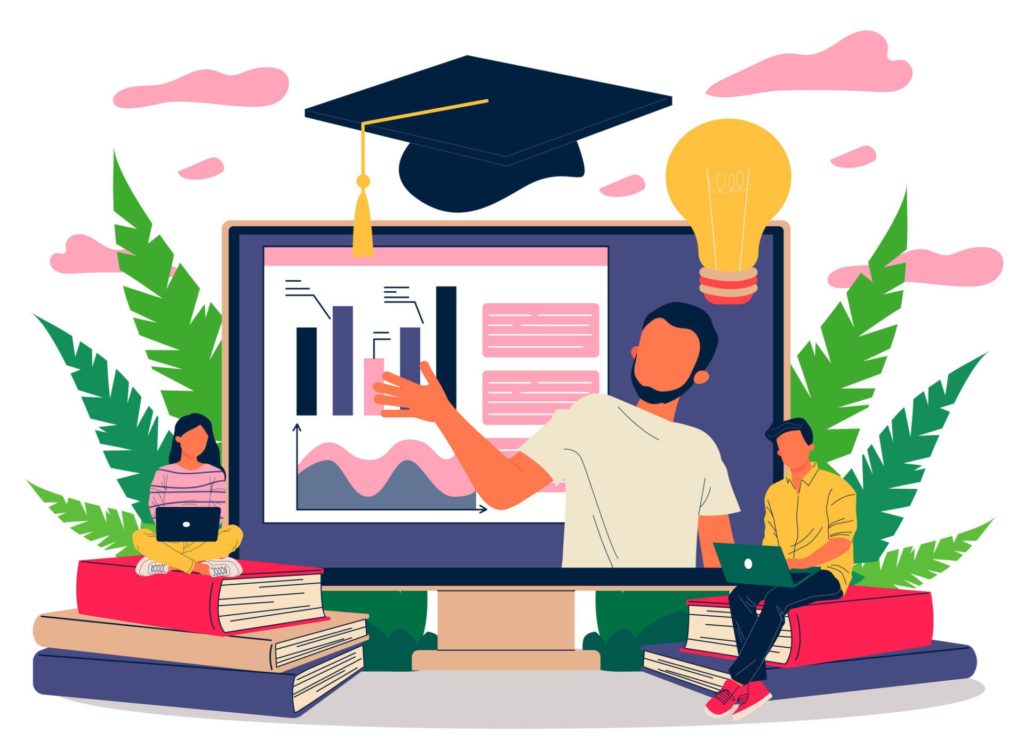Online student support and enrichment are essential to successful online programs. So much so that The National Standards for Quality Online Teaching released by Quality Matters (QM) and the Virtual Learning Leadership Alliance (VLLA) address this in Standard F: Diverse Instruction, which guides the online instructor to personalize instruction based on a learner’s diverse academic, social, and emotional needs.
Monitoring Student Progress
Monitoring student progress is the first step in providing online student support and enrichment, as monitoring by the instructor and or the LMS can identify students who need either remediation or enrichment interventions. While learning management systems are becoming more sophisticated and may be able to identify learners in need of intervention, online instructors need to be able to use both qualitative and quantitative data to identify learners who need additional support.
Intervention with Accommodations
Online instructors need to pay special attention to learners with disabilities and those from traditionally underserved groups. Once online instructors have identified students who require additional support or accommodations, there are a series of steps they should undertake:
- Communicate with appropriate school staff about specific accommodations if others are needed for those accommodations.
- Create alternative formats of course materials, transcripts to go along with video or audio content, or images to accompany written material.
- If further interventions are necessary, recommend assistive technologies, where appropriate, to meet learners’ needs.
Intervention with Enrichment
Online instructors should not only be monitoring for students who require accommodations or for students who are at-risk, they should also be monitoring for students who may need enrichment interventions. These enrichment interventions can be provided by offering additional opportunities for personalized learning and additional learner growth.
In online classrooms that practice student centered learning, this is something that online instructors do regularly. For more on student-centered learning check our student-centered blog series.
Opportunities for personalized learning and enrichment may also take the form of providing supplemental materials and additional resources. Online instructors can do this by providing support and a designated place for sharing the various talents and skills of online learners.
Online instructors have many and varied responsibilities, some are similar to those of face-to-face instructors and some are new to the environment. Access to both qualitative and quantitative data regarding student progress and needs, while not unique to the online environment, is amplified. As a result, teachers have quick access to a large amount of data to monitor and intervene as necessary and to support students in a variety of ways.
Success in Online Learning blog series
In our Success in Online Learning blog series, we discuss all things K-12 online learning in Michigan and across the nation. Our hope with this series is to provide a primer on K-12 online learning, cover established and emerging topics, and provide relevant research and resources. Stay up to date on future blogs in this series by signing up for email notifications!
About the Authors
Kristen DeBruler
Dr. Kristen DeBruler received her doctorate in Educational Psychology and Educational Technology from Michigan State University. She taught in the Master of Arts in Educational Technology program at Michigan State University for three years. Her work focuses on K-12 online learning policy in Michigan and nationwide as well as understanding online learning best practices.
Christa Green
Christa received her master’s in Curriculum and Instruction from Kent State University, as well as a bachelor’s degree in Business Administration. She taught middle school language arts and social studies for seven years before coming to work for Michigan Virtual in 2018. As a Research Specialist with the Michigan Virtual Learning Research Institute, Christa enjoys using her passion for education, curriculum, research, and writing to share and shape best practices in online and blended learning with other educators not only in Michigan, but nationwide.
